

Artikel Pilihan 1 : Patani Bangkit - Bhg 1
Tajuk : Pengenalan Dan Sejarah Ringkas Perjuangan Patani.
sumber : (Klik Sini) atau
http://www.puloinfo.net/default.asp?Show=Patani
Pengenalan :
Geographical Location:
Patani is located between the two latitude lines 5˚-8˚ on the north of the equator in middle of South-East Asia, Malay peninsula comprising nowadays of : Malaysia, Singapore, Indonesia, Brunei and Patani, it is part of the Malay islands, bordering Malaysia from the south, Thailand form the north, Indian Ocean form the west and China sea ( Pacific Ocean ) form the east.
Its area before the Thai occupation is: 50,000 square mile. However, in the present time, there is a struggle to liberate its occupied area 16,000 square mile.
It is comprised of four main states : Patani, Yala, Naratiwat and Stol, in addition to half of Songkhla state. The remaining area is inhibited by a lot of Thai immigrants sent by the Thai government and were settled there to put a pressure on the Patani people to compel them and increase number of Thai Buddhist in these states.
Climate & Land:
Its climate is generally of the tropical zone climate: seasonal rain, fertile land, thick forests covering wide areas, full of large teak trees; one of the best quality and stronger wood kinds, bamboo, coconut palms and other forest production and farm of crops and fruits.
Population:
People of Patani are historically and racially part of the Malay people. According to latest statistics, they are about six million person.
Religion:
Most Patani people are Muslims; there are about 80% of the population, while other 20% are intruders and strangers. So, Muslims were 100% in Patani before those settlers from Thailand came in. A huge number of Muslims are all over in Thailand; their origin is from the captives; taken from Patani by the Thai armies when they invaded it.
Language:
Patani people speak Malay language like all the countries in South-East Asia such as: Malaysia, Indonesia, Singapore and Brunei because there is a very deep historical bound among them all. In addition to their Malay nationality, we considered as a title of the Patani Muslim people. Their language is written in Arabic letters and added some additional letters to be suitable according to their language.
However, Thai government made learning and knowing Thai language an obligatory condition for getting any job or governmental office. They also tried to teach the Malay language, since caring about language is tightly connected to the nation caring about its nationality and future. The language is the nation’s national heritage and the culture's identity which is a supreme need for humanity, hence, when language vanishes from existence nationality, consequently will vanish as well. Since language embodies nationality especially in Patani where any person is Malay race will certainly be Muslim, because Malay people has a deep original relation with Islam.
Spreading of Islam in Patani:
Islam entered Patani in early stages through the merchants who came from the Arabic peninsula across south India to Malay Island. It spread throughout it during the 5th Alhijra century till the country was under the Muslims’ leadership. During the fifteenth century A.D., an Independent Islamic State was established in Patani. This was the foundation for Patani Muslims. They all follow firmly the Islamic traditions and habits.
Economy & Main Crops:
Although Patani is a small state, nevertheless, it is one of the richest states in its region. It is rich with its natural and mineral fortunes such as tin, gold, natural rubber, wood, coconut, rice, fish, oil, natural gas and many others. The national income of the mentioned four states exceeds 35% comparing with the general income of all Thailand which comprises of 71 provinces excluding Patani, especially when it recently is discovered the new excavation of petroleum and natural gas wells in Patani coasts.
That is why Thailand government endeavored and exerted its best whatever it cost to possess and hold Patani tightly, thus it defends its affairs with all military and political ways and by settling the Buddhist people in it so to make them the majority of its population.
Historical Background of Patani Case:
Thailand attempted to occupy Patani since 1603, but Patani Muslims withstood and confronted such Thai-Buddhist attacks. Afterwards, Thailand government made many several attempts to intrude Patani. In 1786 Patani was under their control. It became a subordinate state that pay taxes to the Thai Kingdom. But many Patani revolutions erupted to liberate their land. The furious was the one erupted in 1822 and failed before the Thai forces attacks which spread on the Muslims’ land to destroy their house, devastate their lands, killed a great number of them, executed violence actions against the Patani Muslim people, violated their legal rights and raped their Muslim women. They also eliminated and abolished Islam’ sacramental rituals and places such as destroying mosques and religious schools and many other violence actions. In addition, thousands of the Patani fighters and civilians were taken to the Thai capital (Bangkok) walking barefoot, chained feet, and tightly tight with iron and bamboo in their feet and ears. That is why we can see till today a big number of Muslims in Bangkok originated to these Patani captives carried by the Thai armies when invaded Patani. Since then, the Patani revolutions against the Thai occupation never stop.
In 1902, Thai government eliminated the domination of the Patani sultans and the taxes to make it directorates or province under its domination directly subjected to it and announced that Patani is part of Thailand after conducting a contract with the British in 1909.
Attempts Made for Patani Liberation:
Since 1948 many frequent attempts, peaceful solution suggested by the people and the armed groups and liberation fronts in Patani were made to get their rights back from the Thai-Buddhist occupation to get the full right of liberation and independence. This struggle materialized in the violent armed confrontations for going on the strife. But the Thai government arrested the leaders of these movements and groups to practice cruel and brutal genocide against the Patani people.
Today, there are several liberation movements in Patani. One of the most popular movement in Patani is “ Patani United Liberation Organization”(PULO). The most important goals is to resist the Thai-Buddhist actions aiming at exterminating Islam and Muslims. There is also the appearance of the Patani students’ revolutionary movement, which is called “The General Union of the Patani Revolutionary Students”. It is a squad among the Patani revolution squads, which undertakes to organize the students’ revolutionary action and search for cooperation methods with liberal students’ organizations for fighting the occupation, imperialism and Zionism.
Patani movement considered the Zionism entity one of its biggest enemies due good diplomatic relations between Israel and Thailand, as Zionism support the Thai government with all intelligence to devastate Islam and Muslims in Patani.
Thai Government Policy towards the Patani People:
Thai government settled a lot of Buddhists in Patani to decrease Muslims number. It gave them the right of settlement to weaken the Patani people economically and socially. It governed the education, spread the Thai language instead of Malay language, isolated Patani from the outside world, prohibited international journalists from publishing and announcing the Patani case and considered it an interior problem which the international law not allowed to interfer in, spread the Buddhist temples in the Muslims’ region to convert them into Buddhist areas and changed the places’ name and the names of Muslims persons.
Current Situation in Patani:
Observers see that Patani people are oppressed and that Muslims are inferior to the Thai people in treatment. Muslims are not given sufficient chances of education, learning and their material state is weak. Also, they have only limited chance in official jobs in governmental staff. All that caused several problems to Patani Muslims, although Muslims do not suffer today religious problems relating to conducting their religious rituals which confronting many Muslim minorities across the world.
After all, Patani people will one day get back their raped rights sooner or later with the support of the whole independent people, Muslims, and Arab Nation in all over the world
Sejarah Ringkas Perjuangan Patani :
Sumber :(klik Sini )
The Malays of Southern Thailand are concentrated in the provinces of Patani, Yala, Satun and Narathiwat. These provinces were all part of what was known as Patani Raya (Greater Patani), which covered the domain of the earlier Sultanate of Patani, which was itself derived from the ancient kingdom of Langkasuka (mentioned in the Chinese texts as Lang-Ya-Hsiu).
Since the 18th century, successive Thai rulers have sought to subjugate these Malay states and bring them within the domain of the Siamese empire. In 1901 the Thai ruler King Chulalongkorn broke the peace treaty with the Malay states and launched a military campaign against them. His centralisation programme (thesaphiban) regrouped the seven provinces of Patani under one unit called the Boriween chet huamuang (Area of the Seven Provinces). Siamese administrators were appointed by the King to rule the Malay provinces directly from the royal capital of Krungtheep (Bangkok). In 1906 the seven Malay provinces were brought closer together under a single administrative unit called Monthon Patani. It was only in 1909 that the Malay kingdoms of Kelantan, Trengganu, Kedah and Perlis were taken over by the British colonial power with the signing of the Anglo-Siamese treaty. Despite the division created by the Anglo-Siamese treaty, the Malay kingdoms of Patani were similar to their mainland counterparts in every respect: Patani society was Islamic and Malay in character. They shared the same language, political culture, social structures, customs and values. Cross-border contact between the kingdoms remained high, despite various attempts by the British and Siamese to police the boundary between them.(1)
It should not come as a surprise to anyone that the Malays of Greater Patani resented having to live under the yoke of Thai imperial dominance. Soon enough the Malays of Southern Thailand rose in revolt: Patani resistance to Siamese hegemony began almost as soon as Bangkok tried to re-establish its grip on the Malay kingdoms. In 1903 the Patani Malay aristocrat Tengku Abdul Kadir Qamaruddin revolted against Bangkok. He was defeated and imprisoned for nearly three years as a result. As soon as he was released he planned another insurrection against Siamese rule. The Patani Malays were angry with Bangkok for trying to impose Thai laws on them and Bangkok’s refusal to recognise traditional Malay and Islamic laws in the region. After another failed revolt in 1915, Tengku Abdul Kadir Qamaruddin retreated to Kelantan (which was under British indirect rule) and attempted to regroup his forces with the help of the Sultan of Kelantan, Sultan Muhammad IV.
In 1922, Tengku Abdul Kadir launched his biggest campaign against the Siamese government, in response to the new education policy introduced by Bangkok which made it compulsory for all Patani Malays to attend Thai government schools and learn the Siamese language. Tengku Abdul Kadir regarded this as a deliberate and calculated attempt to erase Patani-Malay identity and to convert the Patani Malays to Buddhism.(2) But Tengku Abdul Kadir’s rebellion ended in failure and a number of prominent Malay rulers were either killed or captured. Despite the fact that they managed to defeat the insurgents, the Thai government realised that it needed to revise its own policy towards the Patani Malays. King Vajiravudh introduced new guidelines in order to help assimilate the Patani Malays into the local administrative structure in the region, in order to give them a sense of commitment and investment in Thai policies. In time, Bangkok began to offer limited concessions to the local Malay rulers, and attempted to co-opt them into the administrative framework of the Patani government.
From Conquest to Co-optation
Due in part to the geo-political realities of the time, the lot of the Patani Malays was not about to improve. British colonial rule in Malaya meant that an entente cordial had been struck between the kingdom of Thailand and Britain – both of which were imperial powers, it should be noted. The British were prepared to turn a blind eye to the developments in Southern Thailand as long as the Thai government recognised the borders of British Malaya that had been set by the Anglo-Thai treaty.
Throughout the 20th century successive Thai governments and rulers have sought to co-opt and pacify the Patani-Malay communities of Southern Thailand by the use of financial inducements as well as the threat of force and violence. More often than not, these policies were directed towards the goals of assimilation and absorption of the Malay community into the Thai-Buddhist mainstream.
Prior to the Second World War Thailand experienced a change of political leadership which led to the rise of General Phibun Songkhram. General Phibun was an extreme right-wing nationalist who was very much influenced by the neo-fascist and ultra-nationalist ideas of Nazi Germany and Japan at the time. Under his rule, Thai society was forced to undergo many radical changes to its political system and social values. In 1939 General Phibun’s government introduced the Thai Ratthaniyom (Thai Customs Decree) which forced all Thai citizens to conform to a set of common cultural norms and which forced all minority groups to follow the model set by the government. This caused considerable outrage in the Malay provinces of Patani, and the Patani Malays regarded it as yet another attempt to erase their cultural and religious identity.
Under General Phibun’s decree Patani Malays were not allowed to dress according to their Malay customs, were forced to use the Thai language, and in some cases even forced to participate in the public worship of Buddhist idols.(3) Phibun’s policy led to an immediate response from the Patani Malays who rebelled against the government. But the government’s response was equally harsh: the army was used to quell the rebellion, leading to the arrest and killing of many Patani leaders. Thousands of Patani Malays fled south to join their fellow Malays in Malaya.
During the post-war years the southern regions became the hotbed of militant anti-state and communist activities, and by the 1970s was the hideout of the Malaysian Communist Party (MCP) that had been forced to go underground. Southern Thailand also became the base for a number of Malay separatist groups such as the Barisan Nasional Pembebasan Patani (BNPP- National Liberation Front of Patani) (4), Pertubuhan Perpaduan Pembebasan Patani (PULO- Patani United Liberation Organisation) (5) and the the Barisan Revolusi Nasional (BRN- National Revolutionary Front) (6).
Between 1968 to 1975 the Thai government launched a series of military operations in the south that were aimed at destroying the networks of Patani liberation movements and underground organisations. ‘Operation Ramkamhaeng’ and the ‘Special Anti-Terrorist Campaign’ that lasted nearly seven years resulted in 385 violent armed clashes between Thai security forces and Patani militant groups. A total of 1,208 detentions and arrests were made, while 329 Patani fighters were killed. 250 militia camps were destroyed and 1,451 weapons were captured. But despite the scale of the counter-insurgency programmes and operations, the Patani region remained tense. In December 1975 Thai security forces killed five Patani youths, leading to the largest anti-government rallies in the history of the region that were carried out in front of the Patani central mosque. To complicate matters even further, the killing of the Patani youths sparked off protests by Malays in the neighbouring state of Kelantan as well, and prompted the leader of the Pan-Malaysian Islamic Party (PAS), Asri Muda, to raise the matter in the Malaysian Parliament.
In the wake of the Iranian revolution of 1979, the Patani resistance movements in Southern Thailand also experienced a shift towards a more radical Islamist register. While some of the more ‘secular’ Patani liberation movements like BRN and PULO would gradually pale into insignificance (the BRN and PULO offices in Saudi Arabia were practically inoperative by the mid-1980s), other movements like the BNPP would move closer to the global current of Islamist radicalism. In 1979 the BNPP upgraded its military training programme and expanded the scope of its guerrilla activities against Thai security forces in the region. In 1985 the more radical and militant elements of the BNPP, led by its vice-chairman Wahyuddin Muhammad, broke away from the parent organisation to form the Barisan Bersatu Mujahideen Patani (BBMP- United Mujahideen Front of Patani). Later in 1986 the BNPP renamed itself the Barisan Islam Pembebasan Patani- (BIPP-Islamic Liberation Front of Patani) in order to underline its stronger commitment to Islamist politics.
The developments in Southern Thailand point to a similar trend across the Muslim world in the late 20th century. All over the world disaffected and marginalised Muslim minorities began to clamour for equal rights and equal citizenship, and when these demands were not met they inevitably turned to some form of popular resistance or another. Groups like the PLO in Palestine, PULO and MNLF in ASEAN and others of their ilk were all fighting on secular-democratic platforms, but were defeated due to their secular-leftist orientation. With the Cold War at its height and American power on the ascendant, these groups were summarily labelled as ‘terrorist’ or ‘Leftist’.
The failure of the secular-democratic resistance groups in turn contributed to the shift to the Islamist register and the growing appeal of Islam as a marker of common solidarity and identity among persecuted minority communities. Following the Islamic revolution in Iran in 1979, political Islam became the political tool of choice and this led to the emergence of splinter groups with a more Islamic image and leaning in the 1980s. In the Philippines the MNLF was overtaken by the MILF (Moro Islamic Liberation Front), in Palestine the PLO was eclipsed by Hamas, in Thailand PULO, BRN and BNPP were overtaken by the Barisan Bersatu Mujahideen Patani (BBMP- United Muhajideen Front of Patani) (est. 1985). The rest, as they say, is history – and what a bloody, sordid, shameful history it is too.
‘Anti-Terror’ or Business as Usual?
Thus far the Thai and international public has been fed a steady stream of undiluted hogwash about the possible causes for the insurgency in the region. Prime Minister Thaksin has claimed that ‘criminal gangs’ may be behind it all. Thailand’s Chief of Armed Forces General Chaiyasidh Shinawatra has claimed that these ‘fanatical bandits’ may have been ‘under the influence of drugs’. The region’s so-called ‘terror experts’ have pontificated about the alleged links to foreign Islamist militant groups. While Thai government officials insist that this is a local problem that needs to be handled domestically.
None of these lame and flaccid excuses actually help to explain the developments taking place in Southern Thailand at present. To label such groups as ‘fanatics’, ‘terrorists’ and ‘criminals’ is to take a page out of the propaganda book of the Cold War when legitimate autonomy and freedom movements were criminalised and pathologised by the cold warriors of the past. Lest it be forgotten, it was the Southern provinces that voted for the democratic party at the past few elections – proof, if any was needed, that the Southerners still believed in the democratic process until not too long ago. But the failure of the government to deliver on their much-lauded reform programmes – coupled with Bangkok’s failure to deal with issues like local corruption, nepotism, police brutality and violence meted out by the Thai army – has ended up alienating vast sections of Patani society who may now feel that the democratic process simply doesn’t work and have turned back to radical religio-politics as they did in the 1980s.
Prime Minister Thaksin may well think that he has the green light to go on with his policies vis the South of Thailand. Indeed, with Thailand being declared a major ally of the US at the moment, the geopolitical winds seem to be blowing his way. But the Thai government would be naïve and foolish to think that Washington’s endorsement and support for its policies is a fixed factor that will not shift in the future. Likewise Thaksin should consider the fate of other pro-US despots and tyrants of ASEAN, such as Ferdinand Marcos and Soeharto of Indonesia, who were ultimately let down and abandoned by their erstwhile American allies when push came to shove.
In the end, no amount of bogus anti-terror rhetoric or propaganda will alter the fact that Thailand’s troubles in the southern provinces are rooted in the internal politics of Thai society itself. The people of Southern Thailand feel themselves to be the victims of Bangkok’s uneven development policies and like their counterparts in the northeastern province of Phaak Isaan, they feel that they have been left out and cast aside in the nation’s march towards development. In the end, it is this simple economic and political factor that will shape the future development of relations between Bangkok and the outer provinces. Talk of ‘militant Islamist groups’ and ‘war on terror’ should be exposed for what it is: A shallow and facile disguise for a divisive form of politics that has thus far torn apart Thai society, at the cost of the country and its neighbours.


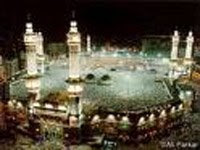
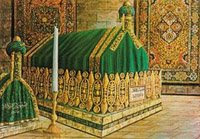

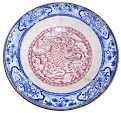

















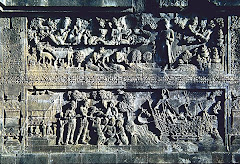

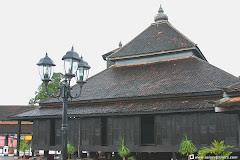

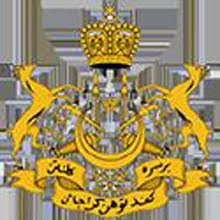

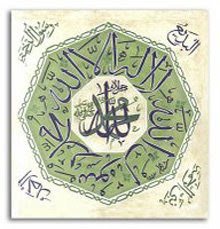

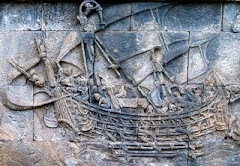

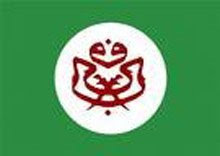
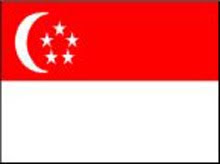
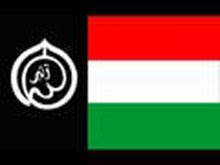



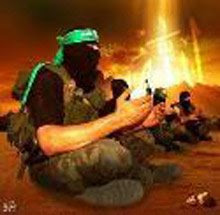

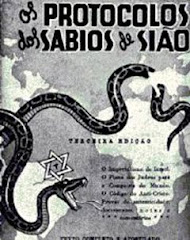

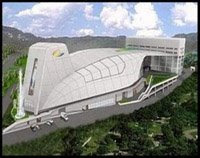


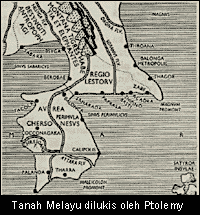
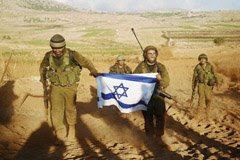



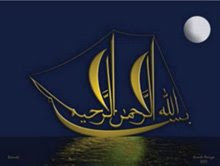



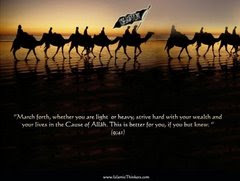










No comments:
Post a Comment